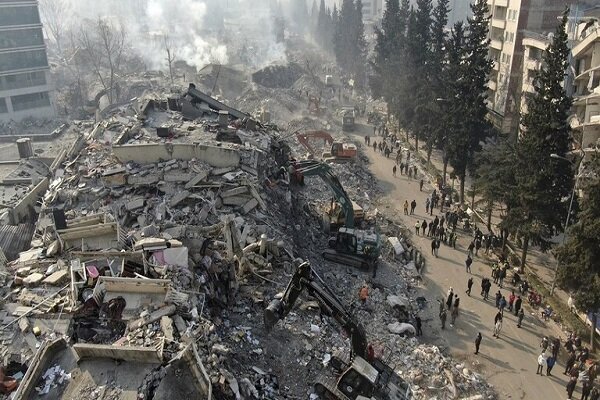INSUBCONTINENT EXCLUSIVE:
TEHRAN - The International Federation of Red Cross and Red Crescent Societies (IFRC) has appreciated the Iranian Red Crescent Society (IRCS)
worked tirelessly to save people's lives and support the needy from the very beginning of the emergency.""Undoubtedly, your efforts are
all the more meaningful when you consider the humanitarian response that the Iranian Red Crescent Society is making nationally in the Khoi
region and in several provinces affected by climate problems," the IFRC president highlighted.The Iranian Red Crescent Society was the first
national community in the world, whose planes carrying humanitarian aid and its specialized rescue teams landed in the earthquake-stricken
areas of Turkey and Syria and carried out rescue operations in cooperation with the red crescent societies of the two host
countries.Kolivand said on February 14 that the IRCS took action to deploy search and rescue teams, as well as the required tools and
supplies, to the regions of Turkey and Syria affected by the February 6 earthquake.Kolivand noted that by utilizing search and rescue
February 18, Syrian Health Minister Hassan Muhammad Al-Ghabash thanked Iran for providing aid to people affected by the recent devastating
services and humanitarian shipments sent by Iran, noting that Syria's health and medical staff have currently and to the extent possible,
to the Syrian relief teams, he added.With the help of the Iranian ambassador in Syria and the proper interaction, the aid reached the
the high number of volunteers of the IRCS worldwide and said that IRCS is one of the strongest communities in the world, which brings hope
Iranian Red Crescent Society's relations with other national communities because those communities can use Iran's experience and
knowledge to deal with and prevent the incidents.At present, the Iranian Red Crescent Society provides medical services to people in 13
Asian, African, and Latin American countries.Currently, some 14 medical facilities are offering humanitarian, relief, and health services to
the deprived people in 13 countries, including Azerbaijan, Afghanistan, the United Arab Emirates, Bolivia, Ivory Coast, Sierra Leone, Ghana,
Congo, Kenya, Lebanon, Mali, Niger, and Ecuador.The IRCS polyclinic center includes various departments such as laboratory, pharmacy,
radiology and physiotherapy, and general practitioners along with obstetricians, gynecologists, internal medicine, pediatrics,

